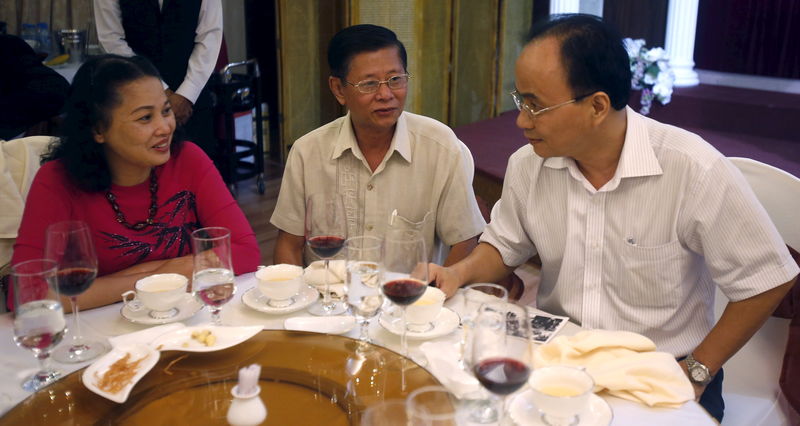By Nguyen Ha Minh
HO CHI MINH CITY (Reuters) - They're neither rich, nor young and hip, but once in a while these four retired 60-somethings are feted like a touring rock band in Vietnam.
They're the crew of tank 390, the humble heroes who famously charged down the gates of Saigon's Independence Palace 40 years ago to cement the North's victory over the U.S.-backed South and reunite Vietnam under communism.
This week they're guests of honour at dinners, functions and grand openings across the same bustling metropolis now named Ho Chi Minh City, meeting company bosses and decorated veterans and treated like celebrities while walking in the streets.
The tank's driver, Nguyen Van Tap, 64, recalled the moment with pride, but said it nearly didn't happen.
A northerner who had never been to Saigon, Tap - who calls the tank his "loyal friend" - said he took several wrong turns and tore through a botanical garden to eventually find the enemy's seat of government.
"I didn't like my first visit to the palace so much," he told Reuters, standing outside what's now a tourist site renamed Reunification Palace.
"I was fighting to regain it and liberate it...I like it so much more now that I'm free to come in."
The office of the south's deposed president Duong Van Minh has been preserved with original features and furnishings intact. It now has a different flag, and a replica of tank 390 parked alongside the lawns it drove across on April 30, 1975.
But it took years before the four men, who between them drove buses, sold noodles and cut hair since retiring, to be recognised as liberators.
Records previously stated a Soviet-era tank numbered 843 entered the palace first, but that's since been disproved and the Chinese-made T59 credited with the feat, declared a national treasure and exhibited in a Hanoi museum.
But the men aren't bitter about the oversight and consider themselves lucky when so many comrades were killed. Commander Vo Dang Toan, 69, said he felt no glory at the moment of victory.

"The first thing I thought of was my family, my home village, my wife and children," he said. "Then I thought of how, from now on, my people and fellow soldiers wouldn't have to spill their blood anymore."